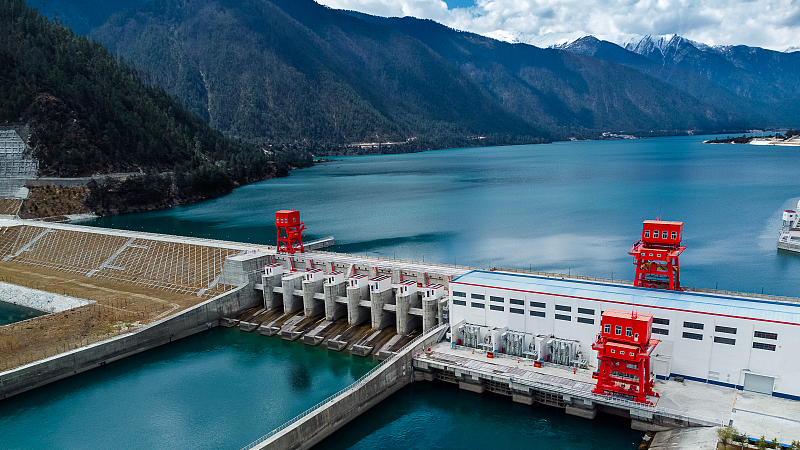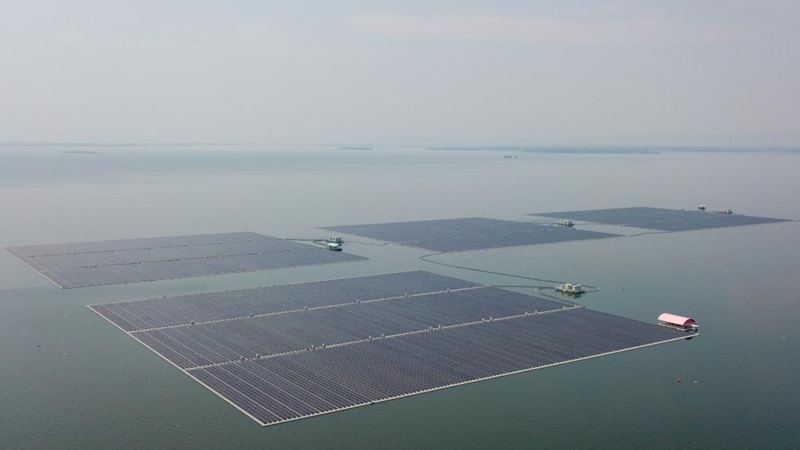China is playing a leading role in the world’s just transition towards renewable energies, the Deputy Director-General of the International Renewable Energy Agency (IRENA) Gauri Singh told Xinhua on Monday on the sidelines of the ongoing World Governments Summit in Dubai.
“China has always played a very important role in renewable energy,” Singh said while extending her greetings to the Chinese people for the Chinese New Year, which falls on February 10.
“The Year of the Dragon embodies the spirit of courage, vitality, and ambition. We all need to be ambitious in how we view our common future and the future of the planet,” she said.
The IRENA, with 169 members, is a leading global intergovernmental organization to promote world renewable transition, support countries in their energy transitions, and provide up-to-date data and analyses on green tech innovation, policy, finance and investment.
Thanks to China’s role as a hub for manufacturing, which drives down green transition costs, a large number of countries were able to advance their national plans more smoothly, according to Singh.
According to the IRENA’s Renewable Capacity Statistics 2023 published in March last year, China accounted for about 48 percent of the increase in global total renewable capacity in 2022.
Two-thirds of the new hydropower capacity, 45 percent of the new solar capacity, half of the new wind capacity, and 57 percent of the new bioenergy capacity in 2022 were installed in China.
“The beauty of what China does is that they just go and just get it done. I think that is a very important aspect of how they’re also looking at international collaboration and cooperation,” Singh said.
Singh added, however, there are three main challenges for the world to overcome in the renewable energy sector.
“One is that we still don’t have the infrastructure in place to support the transition from centralized power plants to renewable energy,” she explained.
“The second remains that this is a sector that’s policy-driven. Policies need to be in place and they need to enable the transition to happen.”
Thirdly, Singh said that more manpower and skills will be required to support the transition.
“We need to make sure that it’s a just energy transition. We can’t leave behind certain parts of the world and move forward because that’s not how it will happen,” she said.
“The role China plays in supporting a lot of developing countries to be able to reform and to build assets in the new energy system is incredible. If that continues and more of it happens, then we will really be able to talk about a just energy transition.”
The United Arab Emirates (UAE) is hosting the World Governments Summit from February 12-14 in a bid to help states develop proactive solutions for future challenges.
The 11th edition of the summit brings together more than 4,000 delegates, representatives of international organizations, opinion leaders, and private sector leaders from around the globe.
During the summit, more than 120 government delegations and 80 international organizations are discussing sustainable economic growth, artificial intelligence, future governments, education, healthcare services, food security and urban expansion.
Source(s): CGTN

 News6 days ago
News6 days ago
 News6 days ago
News6 days ago
 News6 days ago
News6 days ago
 News2 days ago
News2 days ago
 News5 days ago
News5 days ago
 World7 days ago
World7 days ago
 News7 days ago
News7 days ago
 News5 days ago
News5 days ago


















